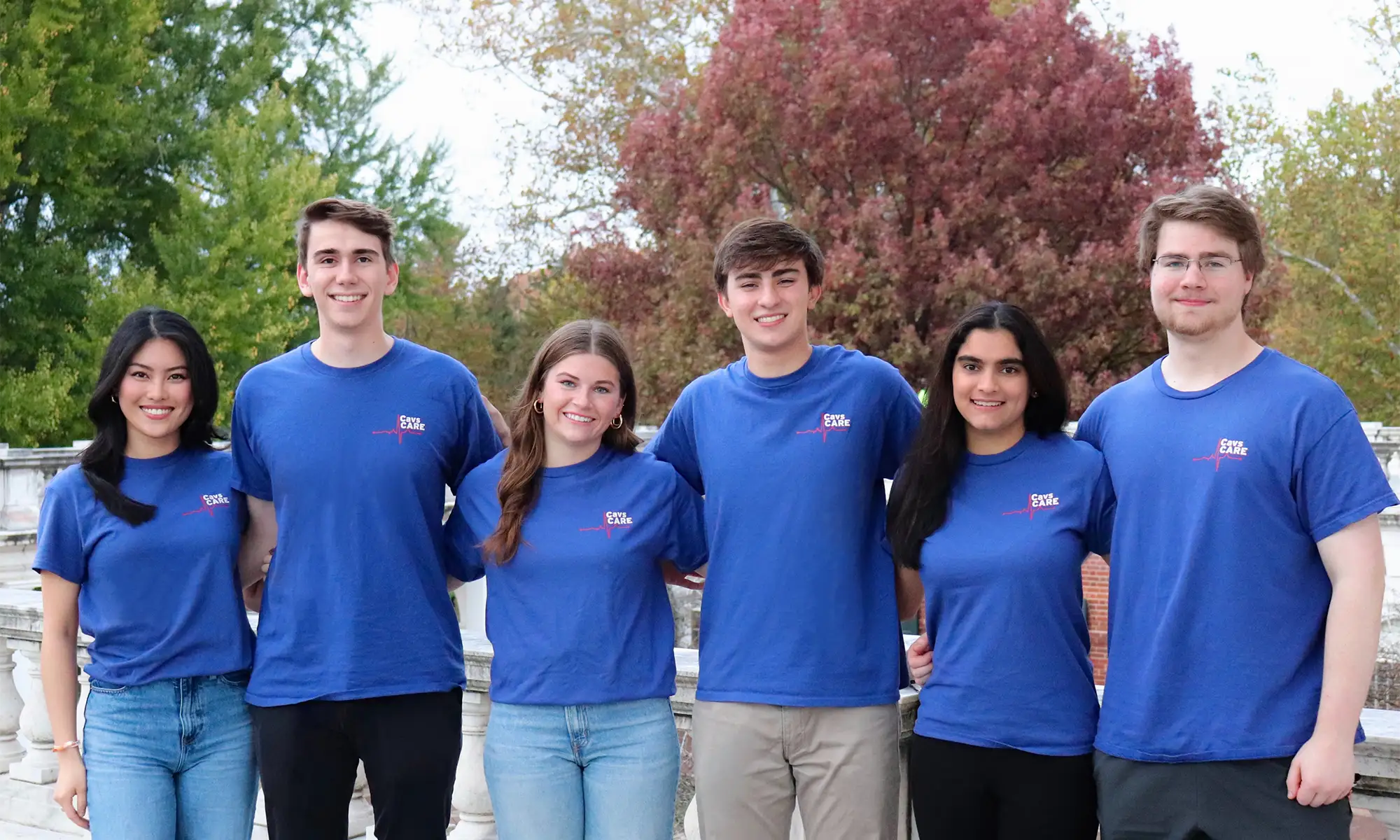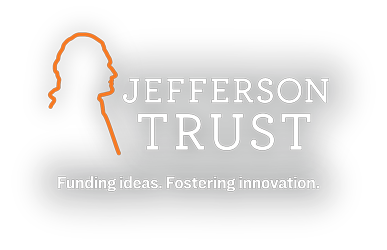
The Jefferson Trust is excited to announce our 2019–2020 annual grant awards totaling $853,357. The 14 projects awarded in this funding opportunity represent a milestone for the Trust—the single largest number of $100,000+ awards made at one time!
In 2020, the Jefferson Trust will award $1 million for the first time in the organization’s history. This will be accomplished through the long-standing annual grants, established annual awards, and the new flash funding awards.
The 2020 annual grants are:
Transformative Autism Biomarker Research Initiative: $122,928
A multidisciplinary group of researchers and clinicians is developing a newborn screening protocol to identify abnormal neurodevelopment before clinical symptoms manifest. In the face of steeply rising autism rates, early intervenion has the potential to drastically improve outcomes.
Guiding Student Research to Solve Global Problems in Air Pollution: $100,000
In October 2018, the World Health Organization officially labeled air pollution “a silent public health emergency.” Through this initiative, students will gain familiarity with air-filtering technologies and will partner with faculty to study the impact of those technologies in the U.S. and several developing countries.
Community-Engaged Learning and Leadership Initiative at Madison House: $100,000
A cohort of Madison House student leaders will enroll in courses focused on community-based learning and service projects, all while volunteering in the Charlottesville community. Madison House will then pair interested UVA faculty and their class syllabi with community partners, for deeper community-based learning opportunities.
The Engaged Writing Project: Embedding Community Engagement Preparation Into UVA First Year Writing Courses: $100,000
This project will embed public service competencies into first-year student writing requirement courses. Students will come to understand their development as writers in relation to central challenges of our time, from local to global.
Summer Program for Entrepreneurial Nanoscale Engineering: $100,000
This summer internship experience is created for rising second- and third-year students interested in entrepreneurialism and nanoscale technologies. Interns will participate in research projects directed by UVA’s nanoSTAR faculty—the Institute for Nanoscale and Quantum Scientific and Technological Advanced Research.
Advancing Interdisciplinary Readiness: $96,000
UVA’s Environmental Resilience Institute will generate training for graduate students and faculty interested in interdisciplinary research that can have a positive impact on communities. Participants will gain the skills needed to lead collaborative projects that address rapid environmental change.
Cavalier Autonomous Racing: $50,000
The Cavalier Autonomous Racing Club, under the supervision of UVA faculty, will build, develop, program and race an autonomous electric go-kart. Club activity will culminate in a demonstration at the Indianapolis Motor Speedway, home of the Indy 500 race.
stARTup Studio: a Business Bootcamp for Creatives: $45,000
This bootcamp will offer a full-day, interactive program for artists at the university and in the community—to help them increase the visibility of and market for their work.
Creating Educational Citizen-Leaders Through Service Learning: $38,437
In partnership with teachers at Charlottesville’s Greer Elementary School, UVA architecture and education students will employ problem-solving processes known as “design thinking” to address student achievement gaps at the elementary school.
The Sixth International Seminar of Young Tibetologists: $32,900
This bilingual conference—offered in both English and Tibetan—will include presentations from early career scholars who are normally isolated from each other across linguistic barriers. The three disparate spheres of Tibetan Studies (Chinese, Tibetan and Euro-American) will interact as a single community.
Breaking the Sound Barrier: Deaf Opera Workshop: $32,000
This performance project will unite the worlds of the Deaf and hearing. Deaf actors from Broadway will join opera singers to work on a new production of Poulenc’s iconic opera of religious persecution, “Dialogues of the Carmelites.” The UVA-based workshop will also be filmed for a documentary.
Strategies of Collecting: Museum Seminar: $15,652
An interdisciplinary group of UVA students will obtain experience researching and proposing objects for acquisition by the Fralin Museum of Art, and will visit leading auction houses, art dealers and galleries in New York.
FLIP at UVA: $14,161
The local chapter of FLIP National (First-Generation, Low-Income Partnership) will align with various university departments to promote programming for and greater inclusivity of first-generation and/or low-income students.
APIDA Student Survey: $6,279
The Asian Student Union will create a survey for all Asian-identifying students at the University of Virginia to ask about their UVA experience. This data will then be shared with university leadership, to better address issues affecting this community.












 Another program enhancing the UVA student experience is Flux, the University’s only slam poetry group. In fall 2019 they held multiple poetry slams as qualifiers to determine which poets will represent UVA at the College Unions Poetry Slam Invitational (CUPSI) in April 2020. Two important dynamics of Flux are audience engagement and creating a safe space; attendees are encouraged to snap, clap, and cheer throughout the poet’s readings, while cultivating an environment where everyone in the room feels respected and heard. A first-year student and participant in the slam commented, “The atmosphere is just incredible…it’s one thing to write a poem … but it’s another thing to perform it for people that are like an incredible community … snapping and cheering.” Another poet shared, “I thought it was really cool that a lot of people brought really personal poems, and I thought it was really cool how open everyone was about their stories.”
Another program enhancing the UVA student experience is Flux, the University’s only slam poetry group. In fall 2019 they held multiple poetry slams as qualifiers to determine which poets will represent UVA at the College Unions Poetry Slam Invitational (CUPSI) in April 2020. Two important dynamics of Flux are audience engagement and creating a safe space; attendees are encouraged to snap, clap, and cheer throughout the poet’s readings, while cultivating an environment where everyone in the room feels respected and heard. A first-year student and participant in the slam commented, “The atmosphere is just incredible…it’s one thing to write a poem … but it’s another thing to perform it for people that are like an incredible community … snapping and cheering.” Another poet shared, “I thought it was really cool that a lot of people brought really personal poems, and I thought it was really cool how open everyone was about their stories.”